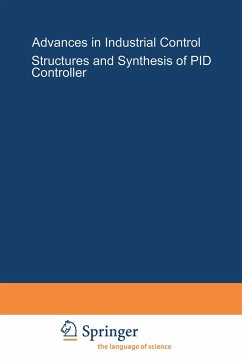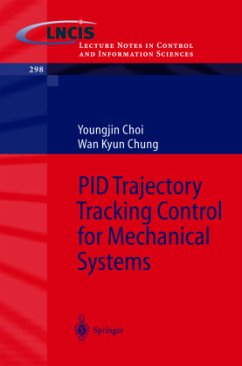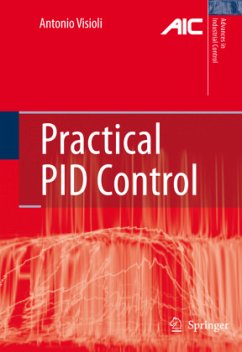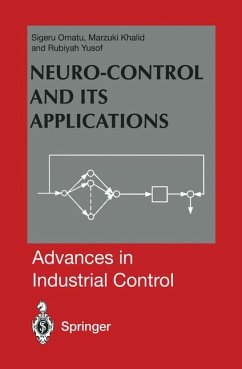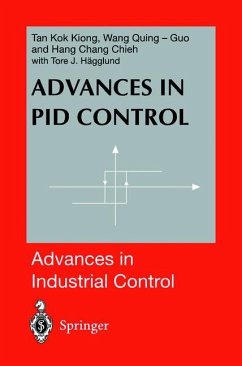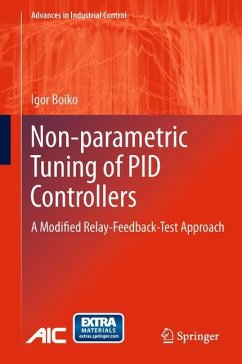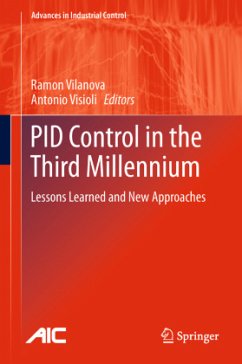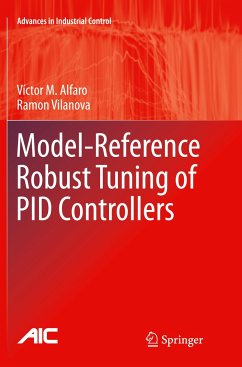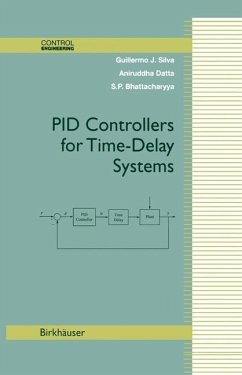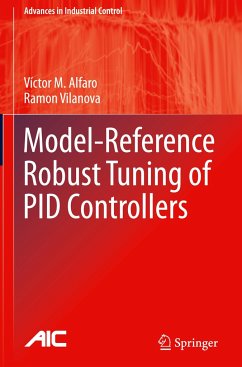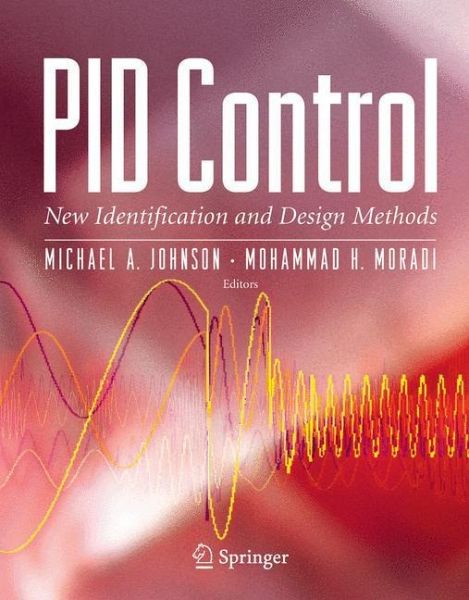
PID Control
New Identification and Design Methods
Herausgegeben: Johnson, Michael A.; Moradi, Mohammad H.

PAYBACK Punkte
58 °P sammeln!
The effectiveness of proportional-integral-derivative (PID) controllers for a large class of process systems has ensured their continued and widespread use in industry. Similarly there has been a continued interest from academia in devising new ways of approaching the PID tuning problem.To the industrial engineer and many control academics this work has previously appeared fragmented; but a key determinant of this literature is the type of process model information used in the PID tuning methods. PID Control presents a set of coordinated contributions illustrating methods, old and new, that co...
The effectiveness of proportional-integral-derivative (PID) controllers for a large class of process systems has ensured their continued and widespread use in industry. Similarly there has been a continued interest from academia in devising new ways of approaching the PID tuning problem.
To the industrial engineer and many control academics this work has previously appeared fragmented; but a key determinant of this literature is the type of process model information used in the PID tuning methods. PID Control presents a set of coordinated contributions illustrating methods, old and new, that cover the range of process model assumptions systematically. After a review of PID technology, these contributions begin with model-free methods, progress through non-parametric model methods (relay experiment and phase-locked-loop procedures), visit fuzzy-logic- and genetic-algorithm-based methods; introduce a novel subspace identification method before closing with an interesting set of parametric model techniques including a chapter on predictive PID controllers. Highlights of PID Control include:
an introduction to PID control technology features and typical industrial implementations;
chapter contributions ordered by the increasing quality of the model information used;
novel PID control concepts for multivariable processes.
PID Control will be useful to industry-based engineers wanting a better understanding of what is involved in the steps to a new generation of PID controller techniques. Academics wishing to have a broader perspective of PID control research and development will find useful pedagogical material and research ideas in this text.
To the industrial engineer and many control academics this work has previously appeared fragmented; but a key determinant of this literature is the type of process model information used in the PID tuning methods. PID Control presents a set of coordinated contributions illustrating methods, old and new, that cover the range of process model assumptions systematically. After a review of PID technology, these contributions begin with model-free methods, progress through non-parametric model methods (relay experiment and phase-locked-loop procedures), visit fuzzy-logic- and genetic-algorithm-based methods; introduce a novel subspace identification method before closing with an interesting set of parametric model techniques including a chapter on predictive PID controllers. Highlights of PID Control include:
an introduction to PID control technology features and typical industrial implementations;
chapter contributions ordered by the increasing quality of the model information used;
novel PID control concepts for multivariable processes.
PID Control will be useful to industry-based engineers wanting a better understanding of what is involved in the steps to a new generation of PID controller techniques. Academics wishing to have a broader perspective of PID control research and development will find useful pedagogical material and research ideas in this text.





